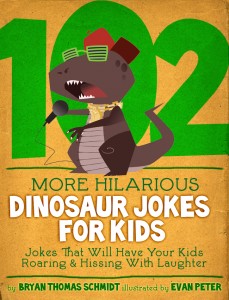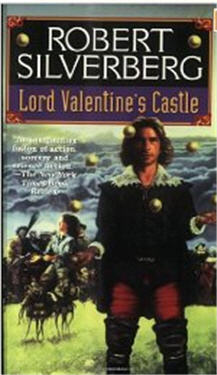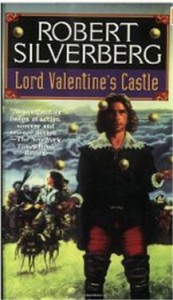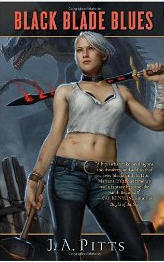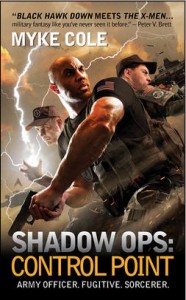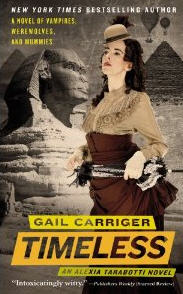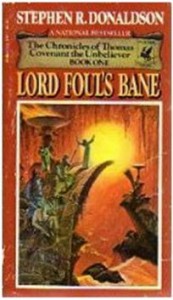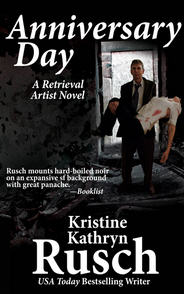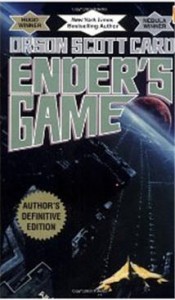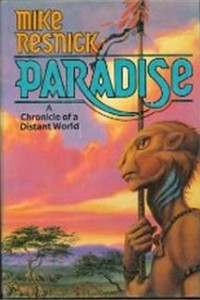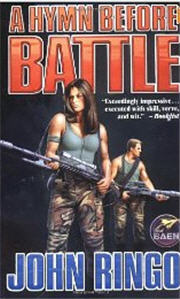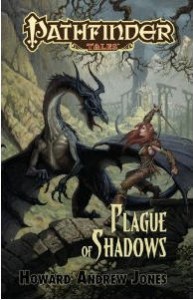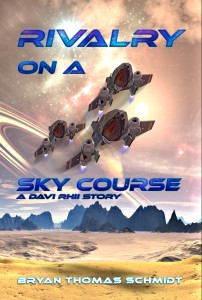 The following is an excerpt from my book How To Write A Novel: The Fundamentals of Fiction, Chapter 1:
The following is an excerpt from my book How To Write A Novel: The Fundamentals of Fiction, Chapter 1:
“If a powerful problem is a novel’s spine,” Donald Maass writes in The Breakout Novel, “then a powerful theme is its animating spirit … It starts with you having something to say.” Theme is one of those topics that makes many people’s eyes glaze over. They think of the theme papers they hated writing in school, perhaps. Or find it abstract and hard to conceive. But theme can and should form the unifying narrative structure of your well-written novel. What is theme? Theme is what a story, at its heart, at its moral core, is really trying to say, what it’s about. It’s why you are telling the story. It is what you have to say. Theme, in essence, is not the argument, but the moral derived from it. It is the lesson(s) and life truth(s) embedded and demonstrated through your story.
In Theme and Strategy, Ronald B. Tobias defines theme as “the central concern around which a story is structured.” He writes, “Theme is your inertial guidance system. It directs your decisions about which path to take, which choice is right for the story and which isn’t.” In essence, theme is what unifies the whole and informs it beyond just a story about a guy or girl who did so-and-so into something memorable with lasting impact that speaks to the human condition. Choosing the right theme will help you unify your story. It isn’t something you should just wing or make up as you go, but something you should think about early on, even as you plan your story, and keep in your mind with every scene you write.
Maass suggests three facts to keep in mind:
All stories are moral.
Readers tend to seek out stories that are in line with their beliefs.
Fiction is most compelling when it pulls readers into points of view that are compelling, detailed, and different.
Readers crave insight on the world around them. They want to be pushed to expand their minds and see things differently, through different eyes. Readers become most engaged when the characters’ beliefs capture their attention and make them think. Whether you know it or not, you have something to say, and having the courage to say it through your story and characters will imbue your novel with power that makes it memorable and lasting. Deep down, all writers believe they have something that must be said, some insight on the human condition the world cannot do without, and these demonstrate their own morality and views of right and wrong in the universe. Ask yourself what that is, and let your story speak to that. Have it in mind as you write. This will create a unified story with resonance far beyond just entertainment. As Maass writes, “stories without fire cannot fire readers.”
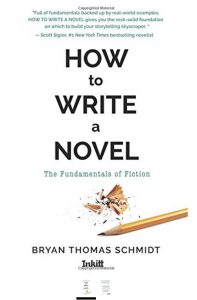 Because readers are moral people, they inherently look for the moral compass that drives characters in fiction. Whether they agree with it or not is not the primary concern—understanding it is. Powerful beliefs and messages imparted through characters are far more effective than writers preaching or teaching directly, because characters who have beliefs that drive them will take concrete actions that reflect those beliefs. The consequences of these actions then speak powerfully about life, people, and more in ways that direct lessons can never accomplish. The key is embedding these morals and beliefs in the characters’ actions. When characters live what they believe, readers will accept the validity of those beliefs and be impacted by the results.
Because readers are moral people, they inherently look for the moral compass that drives characters in fiction. Whether they agree with it or not is not the primary concern—understanding it is. Powerful beliefs and messages imparted through characters are far more effective than writers preaching or teaching directly, because characters who have beliefs that drive them will take concrete actions that reflect those beliefs. The consequences of these actions then speak powerfully about life, people, and more in ways that direct lessons can never accomplish. The key is embedding these morals and beliefs in the characters’ actions. When characters live what they believe, readers will accept the validity of those beliefs and be impacted by the results.
Tobias suggests several major patterns, which can be summarized as follows:
Plot as Theme—Much of popular fiction is driven by this theme, in which plot is paramount over any other concerns. Escapism is the goal here, and as such, while the novels may not carry long-lasting moral messages, they earn big points with readers and generate bestseller after bestseller. They are not striving for great literature but rather great entertainment, and this has made them hugely successful. Agatha Christie, George Lucas, Steven Spielberg, Dan Brown, John Grisham, and many more create works that fall readily into this category.
Emotional Effect as Theme—Terror, Suspense, Romance, Comedy—in this case the emotional effect of the story is the driving theme. Works by authors such as Stephen King, Peter Straub, Gini Koch, Christopher Moore, John Grisham, Heather Graham, Nora Roberts, Nicholas Sparks, and more deal with this theme.
Style as Theme—This theme encompasses a small minority of movies and books because the theme is the artistic style and approach rather than other concerns. The art films and literary novels by auteurs such as John Hawkes, Ingmar Bergman, Federico Fellini, Margaret Atwood, and more have this focus.
Character as Theme—Character studies, like style-themed art, also lend themselves to literary concerns. The focus here is the characters, their growth, and how the world and events of the story affect them. Mark Twain’s The Adventures of Huckleberry Finn, Charles Dickens’s David Copperfield, Gustave Flaubert’s Madam Bovary, and films like Raging Bull, The Great Santini, Taxi Driver, and The Godfather embody this approach.
Idea as Theme—Of all the patterns, this one is most successful at creating memorable events and characters that jump off the page. Idea-themed works affect us profoundly, change the world, change lives, start wars, or at the least, make us think because the whole point of ideas is to make us ponder them, ask questions, discuss, and draw new conclusions. These are often the books whose themes are erased during conversion to movies, leaving us to complain that “the book was better.” Idea as theme is less cinematic, less exciting, but its power cannot be denied. Examples include Robinson Crusoe, Don Quixote, The Graduate, and Shane.
Moral Statement as Theme—The most dangerous of theme categories, this one is most likely to become preachy and heavy handed and turn readers off, so it must be used with great care and attempted only by skillful hands. If the characters are sincere and the plot gripping and storytelling is your focus, though, you can pull this off. According to Tobias, Fatal Attraction and Wall Street are two examples of films that fall in this category. In both cases, the moral results from the story rather than the other way around.
Human Dignity as Theme—These are the stories where the fight to hold on to dignity in spite of circumstances is the focus. Stories like One Flew Over the Cuckoo’s Nest, Rocky, On the Waterfront, Gladiator, and even Roots employ this type of theme.
Social Comment as Theme—Criticizing or shining a light on our culture can be accomplished with great power using fiction. The trick here is finding the right story. Great examples are The China Syndrome and The Grapes of Wrath. The key is to let the characters’ convictions argue for you.
Human Nature as Theme—“What is Man?” is a question that has been explored for centuries and still captures readers’ interest. Stories that fit here include Deliverance, Lord of the Flies, and Robinson Crusoe. (Note: Stories can combine more than one theme. More on that later.)
Human Relations as Theme—Terms of Endearment, Ordinary People, Love Story, many a Nicholas Sparks book like The Notebook or The Wedding, and more all explore this theme where the relation of humans in community, small or large, is the focus.
Coming of Age as Theme—This one I know a lot about as it has been the theme of six of my novels and several short stories to date. The exploration of finding one’s self and confidently staking one’s place or recognizing one’s role and purpose in the universe is a theme found in Star Wars, Rocky, Harry Potter, The Hunger Games, Ender’s Game, and many, many more.
Once you know your theme or themes, you must then decide several things:
1. Who are the characters who can best embody this theme?
2. What plot is best suited for the theme?
3. What kind of setting will best fit the characters and actions necessary to portray the theme?
4. What voice and style is best suited to the theme?
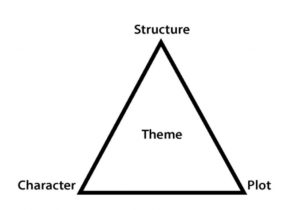 All together, structurally, Theme works with Plot and Character as shown in this diagram.
All together, structurally, Theme works with Plot and Character as shown in this diagram.
Your theme informs all these decisions, which is why knowing the theme first is so important. As the diagram demonstrates, theme is at the center of the core elements of your story’s structure. Additionally, many stories explore more than one theme. If the themes are compatible, this is a very powerful and easy thing to do.
As moral people, readers will turn to fiction for affirmation of their values or the values that underpin the world as they see it. They seek deeper understanding, answers to questions, and more in great stories, driven by the desire to know that what they believe is right. Maass suggests it matters less whether the moral is widely accepted than that it is developed in depth. “The key is your protagonist,” he writes. “If we believe in him, we will believe what he believes.”
We buy into Star Wars because Luke Skywalker believes so passionately in his cause—the Force, the right of the Rebels over the Empire, good versus evil, and what is just. The same can be said of Rocky and many other films, even The Godfather, wherein the protagonist is a criminal corrupted by his world and relationships over the course of the film. The viewer’s agreement with the decisions being made is less important than the conviction of the character. It is in the character’s anger, weeping, fear, and determination that we are inspired to believe, that readers feel it is imperative to know their stories. This is how knowing your theme and developing every scene from that perspective can transform a simple, ordinary story into a life-changing, memorable classic.
So, whether you are a planner or a pantser, outliner or discovery writer, thinking about theme and allowing it to inform your writing will make the difference between your novel being plain or something special, blending in or standing out from the pack. Theme is that vital, that key. And so, as you move forward to plan your premise and the structure that will best bring it to life, theme is an important component of your process which must be considered and carefully weighed.
For what it’s worth…See you next Wednesday.


